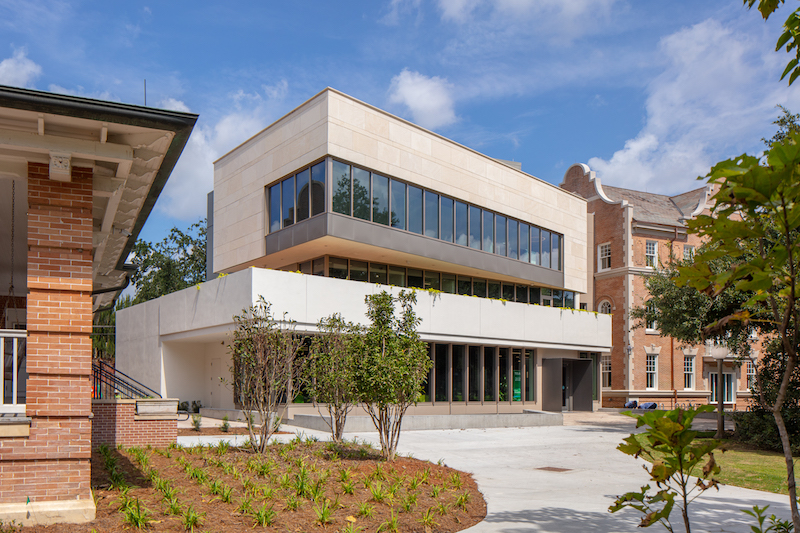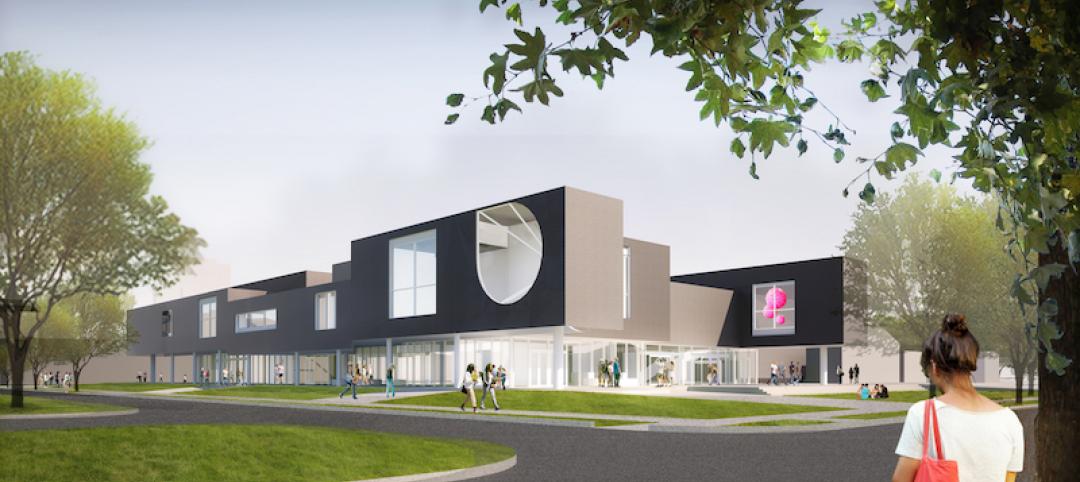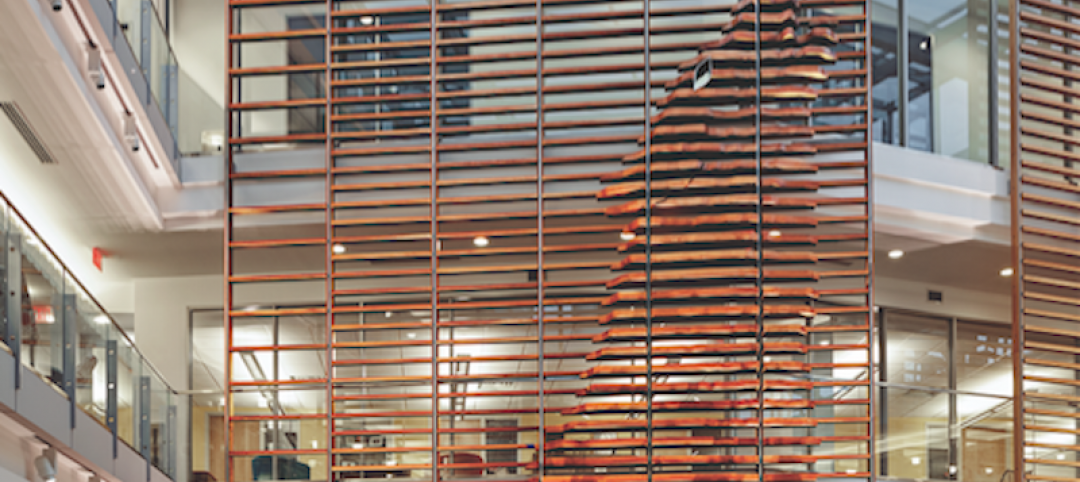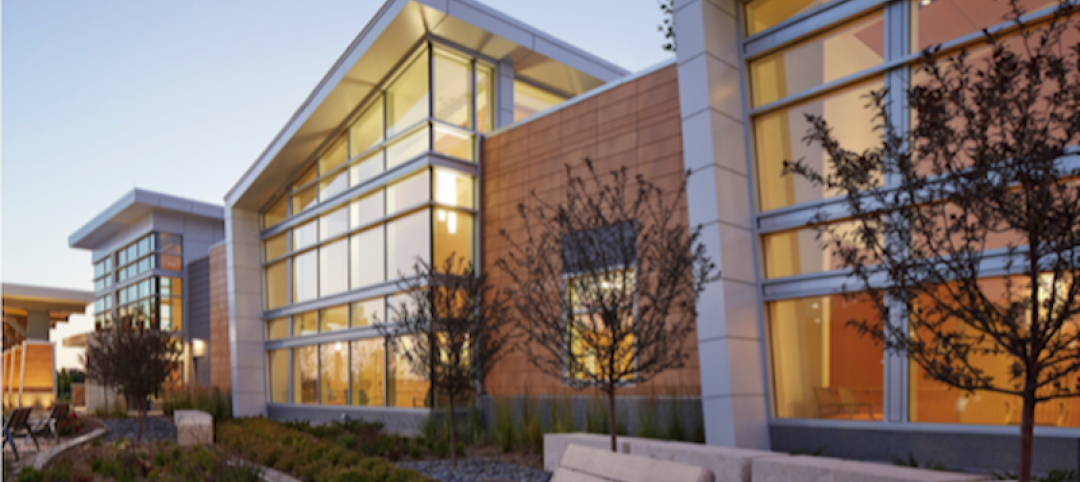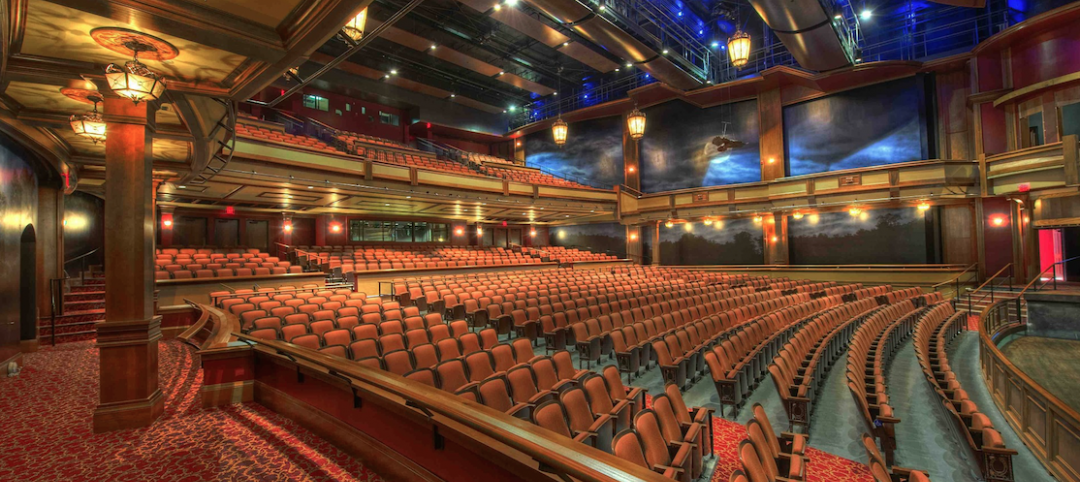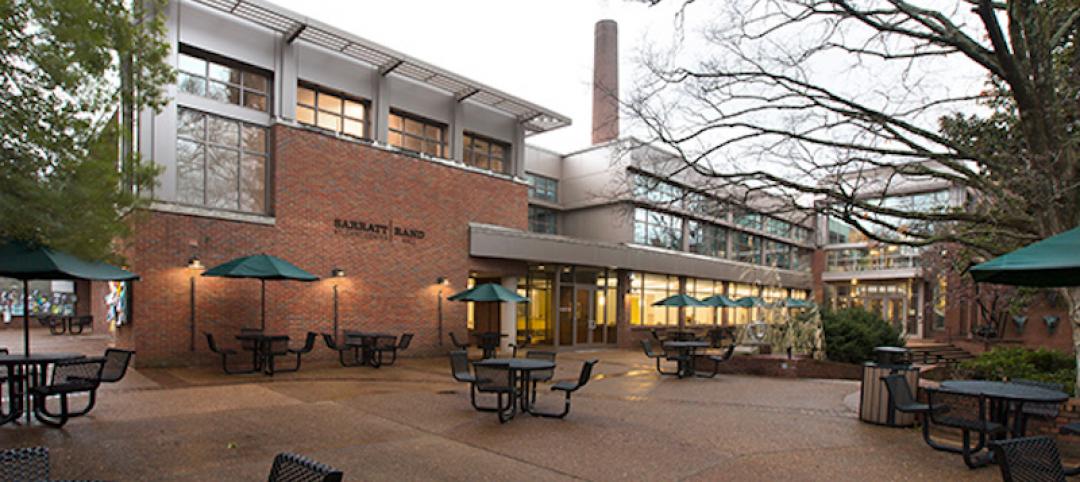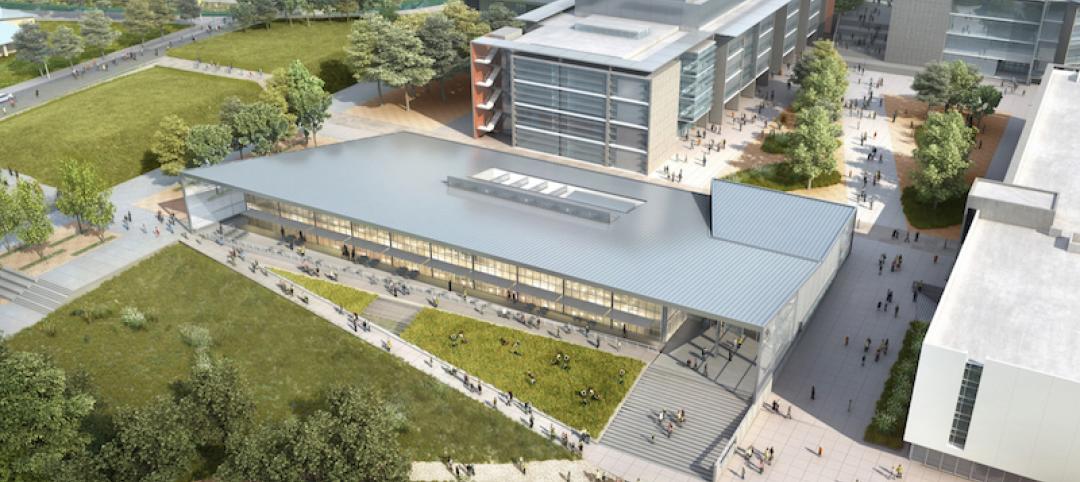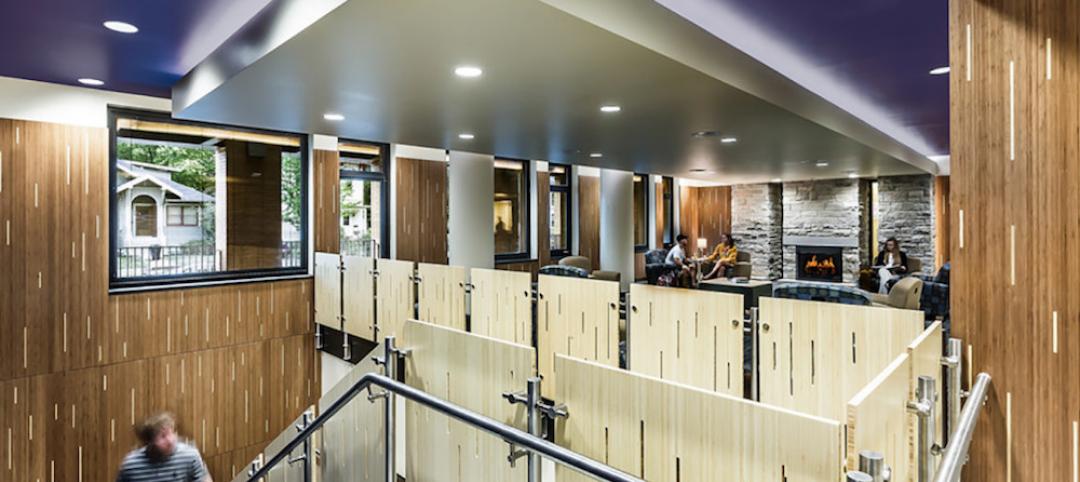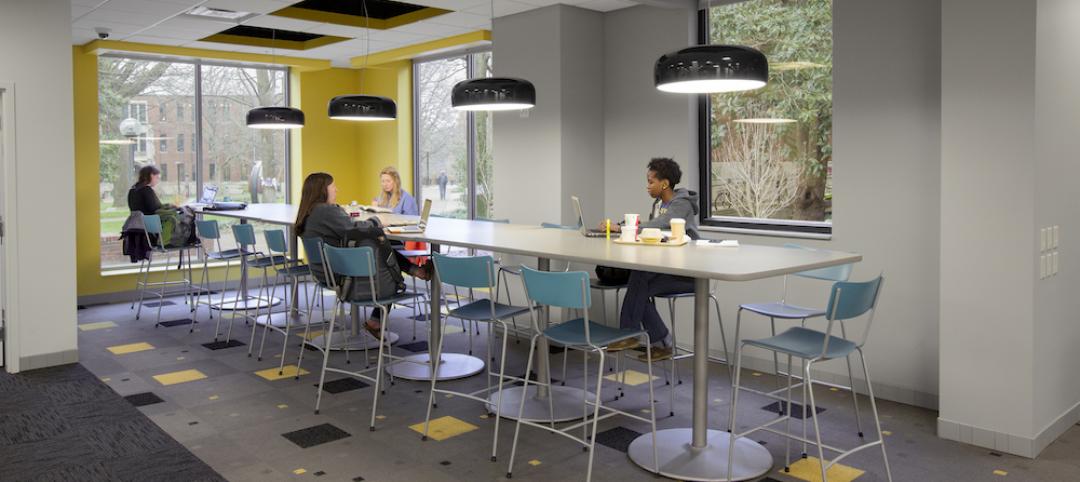Located on Tulane University’s Gibson Quad, Mussafer Hall combines the adaptive reuse of a 1902 brick building with a modern limestone addition. The building is the home of the Center for Student Success, which brings together Tulane’s Academic Advising and Career Services programs.
The 1902 Dutch-Renaissance style building was originally constructed as the college’s first dormitory. The long, narrow building was divided by a double-loaded corridor. The glass-fronted offices and interview rooms lining the hall have windows looking outside to make the building feel open and bright. Two original stairwells have been repurposed as lightwells and, where possible, original brick interior walls were exposed and repointed.
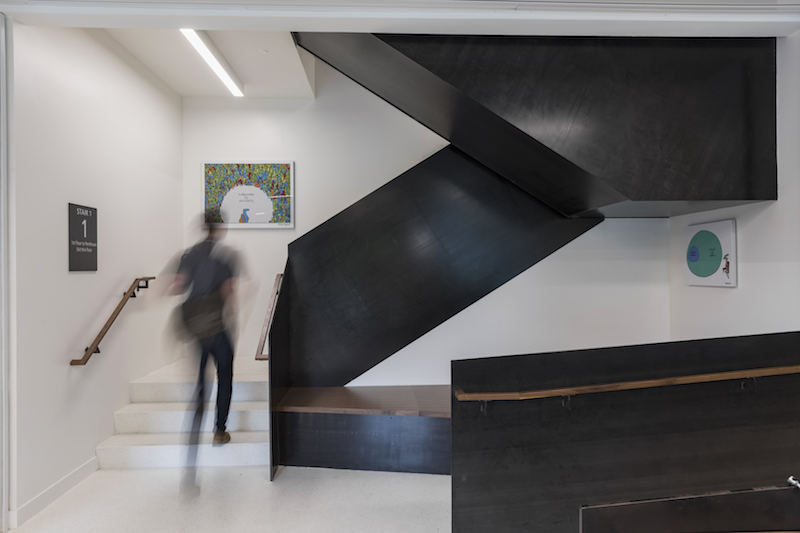 Photo: Sara Essex Bradley.
Photo: Sara Essex Bradley.
The addition sits on a tight site between the 1902 building and a 100-year-old oak tree. The 7,600-sf building navigates its site with a series of shifting cantilevered volumes clad in stucco, limestone, and glass. Mussafer Hall’s triangular footprint is set back from the historic building and angled away from the tree to protect its roots and canopy.
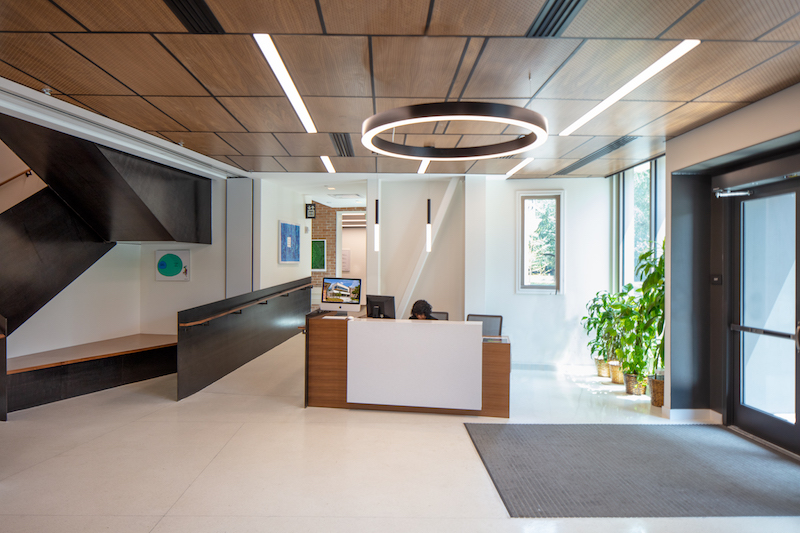 Photo: Neil Alexander.
Photo: Neil Alexander.
The central ground-floor space is designed to accommodate classes, lectures, meetings, receptions, seminars, and other events. Black millwork panels conceal storage areas, flex space, and marker boards.
Mussafer Hall is the second full building studioWTA has designed on Tulane’s campus and the firm’s 12th project for the School.
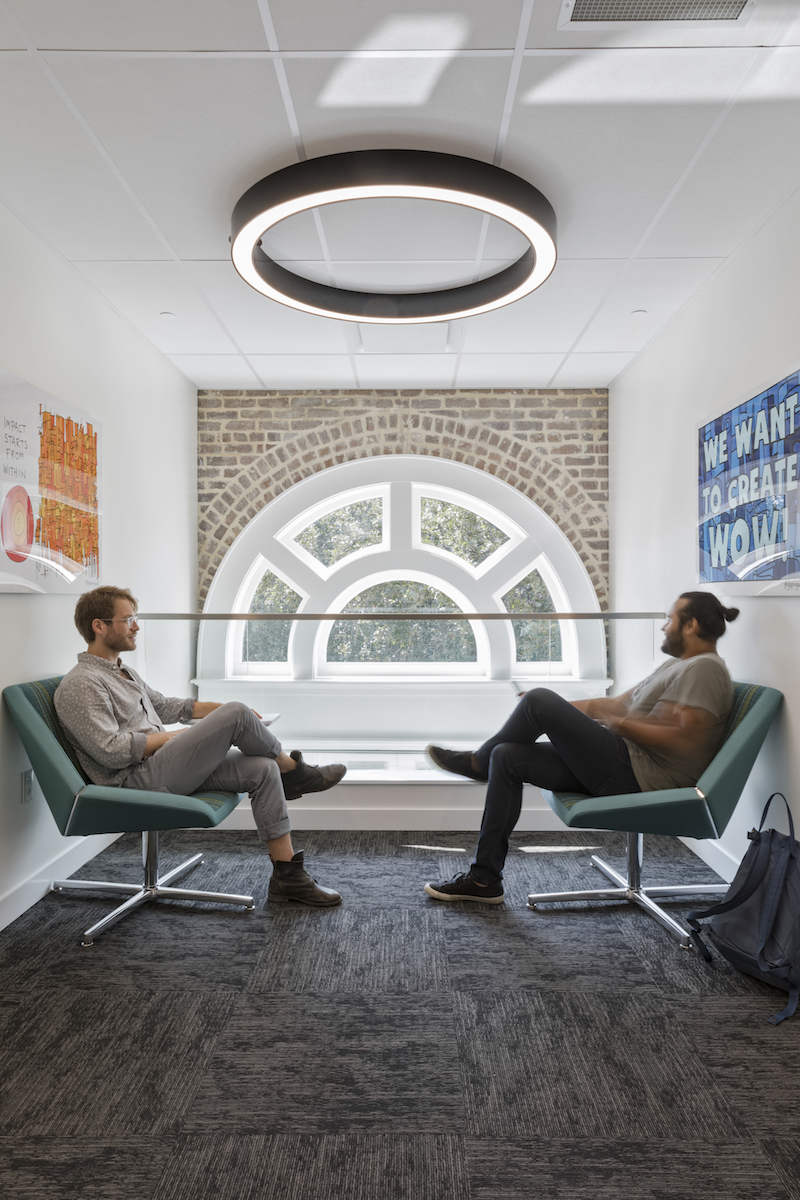 Photo: Sara Essex Bradley.
Photo: Sara Essex Bradley.
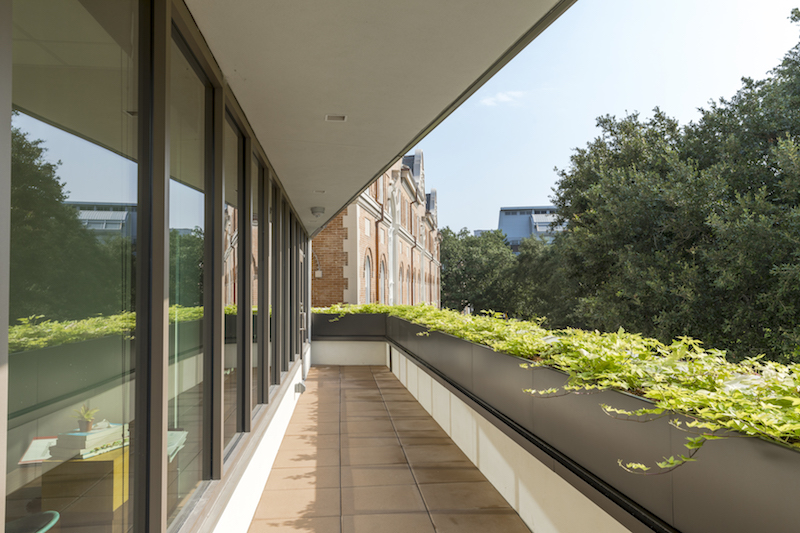 Photo: Sara Essex Bradley.
Photo: Sara Essex Bradley.
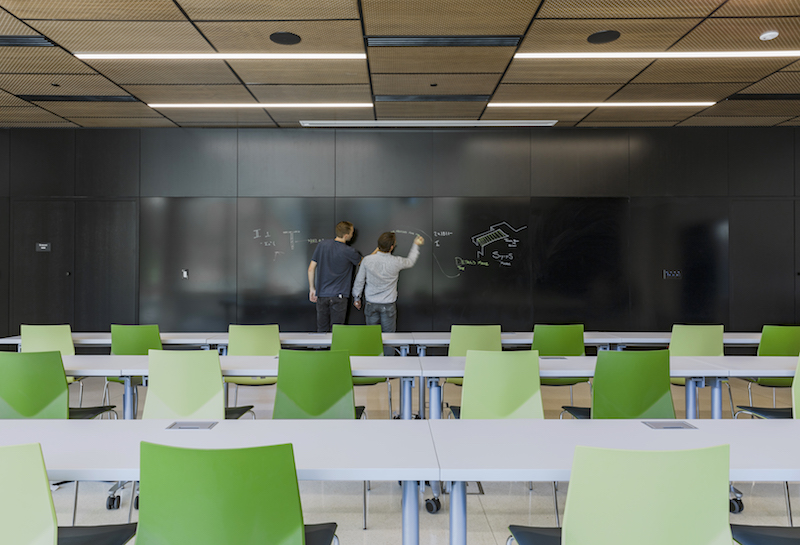 Photo: Sara Essex Bradley.
Photo: Sara Essex Bradley.
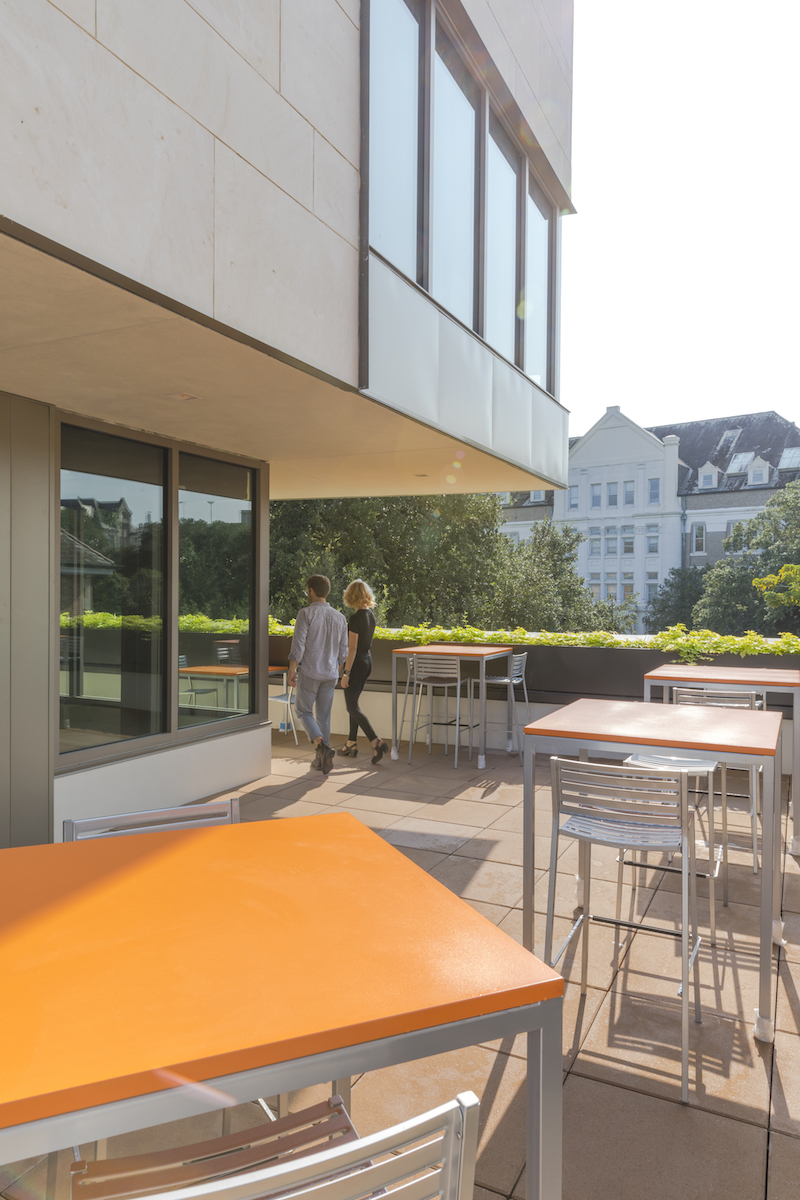 Photo: Sara Essex Bradley.
Photo: Sara Essex Bradley.
 Photo: Neil Alexander.
Photo: Neil Alexander.
Related Stories
University Buildings | Aug 16, 2016
New images of Rice University’s Moody Center for the Arts revealed by Michael Maltzan Architecture
The arts center will foster creativity for making and presenting works across all disciplines
| Aug 10, 2016
UNIVERSITY GIANTS: Facing money woes, the nation's colleges double down on innovative ideas
Budget constraints are compelling some public institutions to pursue alternative methods of financing their major building projects.
| Aug 9, 2016
Top 70 University Engineering Firms
AECOM, WSP | Parsons Brinckerhoff, and Jacobs top Building Design+Construction’s annual ranking of the nation’s largest university sector engineering and E/A firms, as reported in the 2016 Giants 300 Report.
| Aug 9, 2016
Top 100 University Construction Firms
Turner Construction Co., The Whiting-Turner Contracting Co, and Skanska USA top Building Design+Construction’s annual ranking of the nation’s largest university sector construction and construction management firms, as reported in the 2016 Giants 300 Report.
| Aug 9, 2016
Top 100 University Architecture Firms
Gensler, Perkins+Will, and CannonDesign top Building Design+Construction’s annual ranking of the nation’s largest university sector architecture and A/E firms, as reported in the 2016 Giants 300 Report.
University Buildings | Aug 5, 2016
How to design the best dining facilities for Millennial students
Location, visibility, and adaptability are three important ideas to keep in mind when designing campus dining spaces, writes Gresham Smith and Partners’ Patrick Gilbert.
University Buildings | Jul 22, 2016
Fast-growing UC Merced will double in size by 2020
The state’s Board of Regents has approved a $1.34 billion plan that would add nearly 1.2 million sf of new space.
University Buildings | Jul 6, 2016
University housing of the future will blend life and study
Universities across the country are striving to meet the demand of on-campus housing. VOA's Steve Siegle examines what students and universities desire in campus living, and how designers can respond.
University Buildings | Jun 13, 2016
Renovated Drexel University academic building will welcome students with front porch
A large screen sets a living room vibe for the Philadelphia academic building. Plans call for 9,000 sf of common space on the inside and a new quad on the outside.
University Buildings | Jun 13, 2016
Universities infuse tech features into learning, living, and shopping spaces
Virtual learning rooms, gaming stations, and self-check-out kiosks are among the perks—and necessities—that have all become commonplace in college campus design.


